
Rashtriya Swayamsevak Sangh is an Indian right-wing, Hindu nationalist volunteer paramilitary organisation. It is the progenitor and leader of a large body of organisations called the Sangh Parivar, which has developed a presence in all facets of Indian society and includes the Bharatiya Janata Party, the ruling political party under Narendra Modi, the 14th prime minister of India. Mohan Bhagwat has served as the Sarsanghchalak of the RSS since March 2009.
Hindutva is a political ideology encompassing the cultural justification of Hindu nationalism and the belief in establishing Hindu hegemony within India. The political ideology was formulated by Vinayak Damodar Savarkar in 1922. It is used by the Rashtriya Swayamsevak Sangh (RSS), the Vishva Hindu Parishad (VHP), the Bharatiya Janata Party (BJP) and other organisations, collectively called the Sangh Parivar.

The Bharatiya Janata Party is a political party in India and one of the two major Indian political parties alongside the Indian National Congress. Since 2014, it has been the ruling political party in India under the incumbent Prime Minister Narendra Modi. The BJP is aligned with right-wing politics and has close ideological and organisational links to the Rashtriya Swayamsevak Sangh (RSS) volunteer paramilitary organisation. Its policies adhere to Hindutva, a Hindu nationalist ideology. As of January 2024, it is the country's biggest political party in terms of representation in the Parliament of India as well as state legislatures.
The Sangh Parivar refers, as an umbrella term, to the collection of Hindutva organisations spawned by the Rashtriya Swayamsevak Sangh (RSS), which remain affiliated to it. These include the political party Bharatiya Janata Party, religious organisation Vishva Hindu Parishad, students union Akhil Bharatiya Vidyarthi Parishad (ABVP), religious militant organisation Bajrang Dal that forms the youth wing of the Vishva Hindu Parishad (VHP), and the worker's union Bharatiya Kisan Sangh. It is also often taken to include allied organisations such as the Shiv Sena, which share the ideology of the RSS.
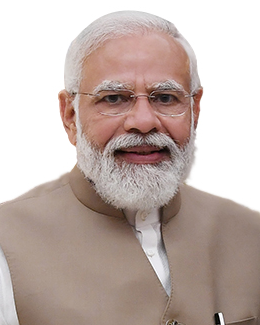
Narendra Damodardas Modi is an Indian politician who has served as the 14th prime minister of India since May 2014. Modi was the chief minister of Gujarat from 2001 to 2014 and is the Member of Parliament (MP) for Varanasi. He is a member of the Bharatiya Janata Party (BJP) and of the Rashtriya Swayamsevak Sangh (RSS), a right wing Hindu nationalist paramilitary volunteer organisation. He is the longest-serving prime minister from outside the Indian National Congress.
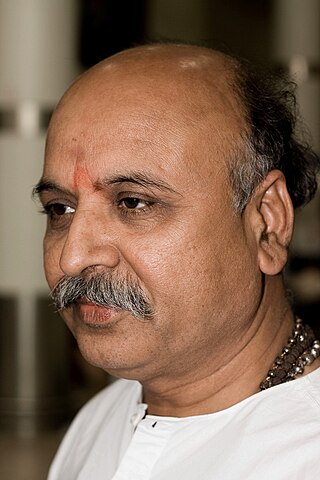
Pravin Togadia is an Indian doctor, cancer surgeon and an advocate for Hindu nationalism, coming from the state of Gujarat. He was the former International Working President of the Vishva Hindu Parishad (VHP) and a cancer surgeon by qualification. He is Founder and Current President of Antarashtriya Hindu Parishad. He had a falling out with the Sangh Parivar and is a vocal critic of Narendra Modi.
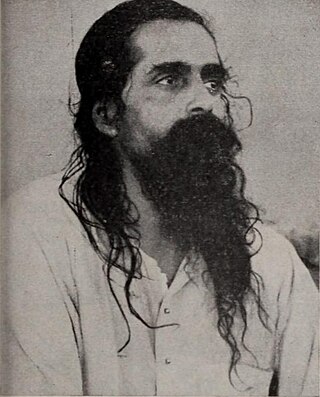
Madhav Sadashivrao Golwalkar, popularly known as Guruji, was the second Sarsanghchalak ("Chief") of the Rashtriya Swayamsevak Sangh (RSS). Golwalkar is considered one of the most influential and prominent figures among Rashtriya Swayamsevak Sangh by his followers.
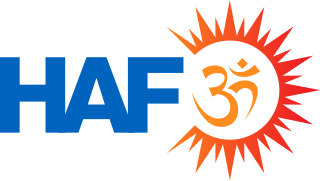
The Hindu American Foundation is an American Hindu non-profit advocacy group founded in 2003. The organisation has its roots in the Hindu nationalist organisation Vishwa Hindu Parishad America and its student wing Hindu Students Council.
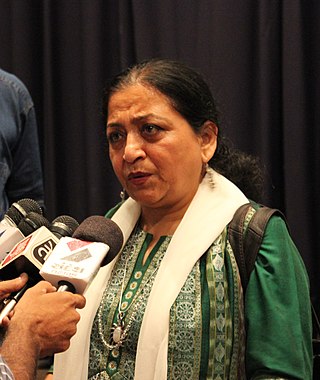
Madhu Purnima Kishwar is an Indian academic and a Hindutva commentator. She is currently employed as a chair Professor in the Indian Council of Social Science Research. Kishwar along with fellow-academic Ruth Vanita co-founded the journal Manushi.
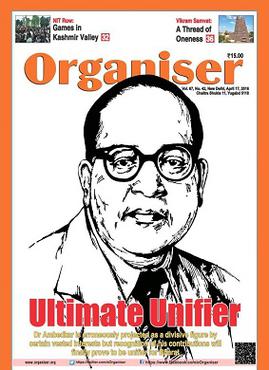
Organiser is a mouthpiece of the Hindutva voluntary organisation Rashtriya Swayamsevak Sangh (RSS). It was launched as a newspaper in 1947 in the weeks before the Partition of India. The newspaper has been edited by A. R. Nair, K. R. Malkani, L. K. Advani, V. P. Bhatia, Seshadri Chari and Dr R. Balashanker. It has promoted misinformation on many occasions.
Madhav Vittal Kamath was an Indian journalist and broadcasting executive, and the chairman of Prasar Bharati. He worked as the editor of The Sunday Times for two years from 1967 to 1969, as Washington correspondent for The Times of India from 1969 to 1978 and also as editor of The Illustrated Weekly of India. He had also written numerous books and was conferred with the Padma Bhushan award in 2004. He was born in a brahmin family
Hindu nationalism has been collectively referred to as the expression of social and political thought, based on the native spiritual and cultural traditions of the Indian subcontinent. "Hindu nationalism" is a simplistic translation of हिन्दू राष्ट्रवाद. It is better described as "Hindu polity".
The Akhil Bharatiya Itihas Sankalan Yojana (ABISY) is a subsidiary of the Rashtriya Swayamsevak Sangh (RSS), a Hindu-nationalist organisation. Envisioned in 1973 by Moropant Pingley, a pracharak of the RSS, and founded in 1978-79, ABISY holds that India's history was distorted by the British Raj, and seeks to correct the biases. Scholars state that the actual aim of the organisation is to rewrite Indian history from a Hindu nationalist perspective.
Cow vigilante violence is a pattern of mob-based collective vigilante violence seen in India. The attacks are perpetuated by Hindu nationalists against non-Hindus to protect cows, which are considered sacred in Hinduism.

Hindu–Muslim unity is a religiopolitical concept in the Indian subcontinent which stresses members of the two largest faith groups there, Hindus and Muslims, working together for the common good. The concept was championed by various persons, such as leaders in the Indian independence movement, namely Mahatma Gandhi and Khan Abdul Ghaffar Khan, as well as by political parties and movements in British India, such as the Indian National Congress, Khudai Khidmatgar and All India Azad Muslim Conference. Those who opposed the partition of India often adhered to the doctrine of composite nationalism.

Awakening Bharat Mata: The Political Beliefs of the Indian Right is a literary collection by Swapan Dasgupta, published by Penguin Random House in 2019. The book is about the rise and beliefs of right-wing politics in India.
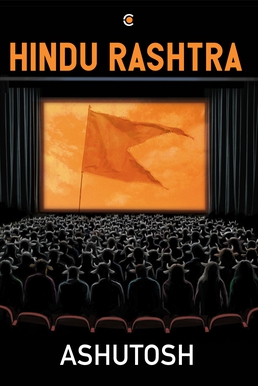
Hindu Rashtra: What It Is. How We Got Here is a book authored by senior journalist Ashutosh and published by Context, an imprint of Westland Publications in the year 2019. The book describes the capture of political power in India by the Sangh Parivar.

Price of the Modi Years is a book authored by Aakar Patel, published by Westland Publications Limited in 2021. The book details the history of India since 2014 when Narendra Modi became the Prime Minister. It examines the potential human and economic price that it claims India will be paying for the decisions made in the seven years spent under the BJP government since 2014.
In December 2021, a dharma sansad of Hindu ascetics was held at Haridwar in Uttarakhand, India, where hate speeches were delivered in which the speakers called for a genocide against Muslims in the name of protecting Hinduism. The government's apathy in the face of the hate event has been condemned by a wide cross section of Indian society, including retired military leaders, civil society activists, students, academics, and retired judges.
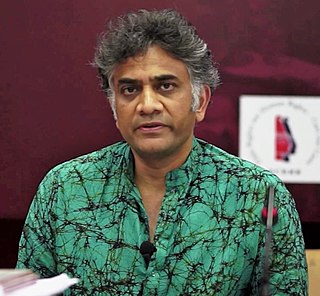
Aakar Patel is an Indian journalist, activist and author. He served as the head of Amnesty International in India between 2015 and 2019, and currently serves as the chair of the Board of Amnesty International in India. He is the author of Our Hindu Rashtra, an account of majoritarianism in India, and of Price of the Modi Years, which examines the administrative performance of Indian Prime Minister Narendra Modi. In 2014, he authored a translation of Saadat Hasan Manto's Urdu non-fiction Why I Write.













